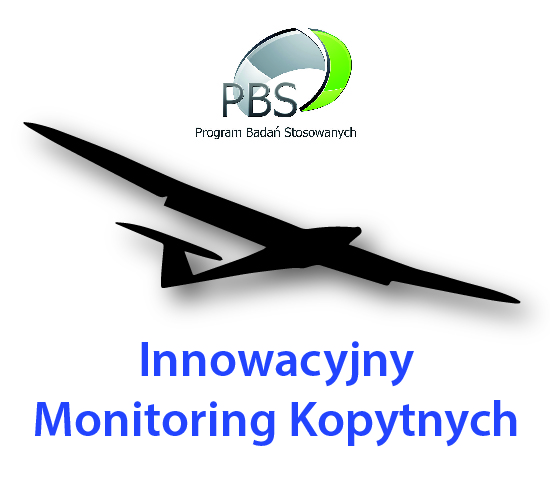Behaviour, Ecology and Immunology of Social Insects
Bartosz Walter, PhD
Assistant Professor at Museum and Institute of Zoology, Polish Academy of Scieneces
 My recently established research group at the Polish Academy of Sciences, Warsaw, is focused on answering major questions of behavioural and population ecology of social insects. We are a young and dynamic team dedicated to make a substantial impact both in international science and nature conservation. We currently work on ants (Platythyrea, Pachycondyla, Odonthomachus, Pseudomyrmex, Temnothorax, Leptothorax, Myrmica,
My recently established research group at the Polish Academy of Sciences, Warsaw, is focused on answering major questions of behavioural and population ecology of social insects. We are a young and dynamic team dedicated to make a substantial impact both in international science and nature conservation. We currently work on ants (Platythyrea, Pachycondyla, Odonthomachus, Pseudomyrmex, Temnothorax, Leptothorax, Myrmica,
Formica), paper wasps (Polistes), and bees (Apis, Bombus). Should you have any questions
regarding our research or collaboration opportunities, please, do not hesitate contact me at:
This email address is being protected from spambots. You need JavaScript enabled to view it.
Current projects
Population-level mechanisms of biodiversity loss in human-disturbed tropical habitats
High rate of human-induced disturbance of tropical ecosystems results in enormous loss of biodiversity. Yet, the mechanisms at the population level, causing species extinction in disturbed habitats, are still not fully understood. Main goal of the project is to unveil the
mechanisms that attenuate populations inhabiting human-disturbed habitats. I will compare nest site parameters, colony size and structure, and brood production of the Neotropical ant Platythyrea punctata in undisturbed and disturbed secondary rain forests in Puerto Rico. I aim to demonstrate the population-level mechanisms (e.g. decreased rate of brood production or smaller population size) that directly promote species extinction in disturbed habitats and indirectly lead to lower biodiversity there. I hope that my results will help nature conservationists in their efforts to protect the biodiversity, especially in tropical rain forest ecosystems.


Conflicts and conflict resolution in multiple-queen societies of social insects
Though colonies of social insects are commonly thought to be peaceful societies without much disagreement about reproduction they are often full of internal conflicts concerning rights to reproduce. One of such conflicts is conflict between queens (female reproductives) in multiple-queen societies of ants (functional monogyny). In such colonies only one of the queens can reproduce, while others have to refrain from reproduction. I investigate the factors (age, experience, potential fertility) that may increase chances of a queen to monopolize the reproduction in functionally monogynous colonies of ants.


Recent projects
Social immunology in ants
Societies of social insects (termites, wasps, bees, ants) provide perfect conditions for the spread of infections as they constitute more or less extended families with group members
living in direct contact. Therefore the societies are expected to employ mechanisms that reduce the probability of transmitting pathogens to group members. Death in nature rarely results from old age, but commonly results from diseases. Leaving one’s group to die in seclusion might be an efficient way of minimizing the risk of infecting kin.
In the studies with prof. Jürgen Heinze from Regensburg University we showed that fungus infected workers of the ant Temnothorax unifasciatus leave spontaneously their nests before dying and die in social isolation far from the nest and nest mates. Similarly also uninfected workers whose life expectancy was experimentally reduced by exposure to 95% CO2, and uninfected workers dying in observation colonies exhibited the same suite of behavior of isolating themselves
from their nestmates days or hours before death. Therefore actively leaving the nest and breaking
off all social interactions occurred regardless of whether individuals were infected or not, demonstrating that the self-isolation in not due to parasite-induced manipulation of the moribund ants behavior. Social isolation might be a commonly overlooked altruistic trait serving the inclusive fitness interest of dying individuals in social animals.
See also:
Heinze, Jürgen, and Bartosz Walter. "Moribund ants leave their nests to die in social isolation." Current Biology 20.3 (2010):
249-252.
Conflict resolution and colony size in social insects
Cohesion of social groups requires the suppression of individual selfishness. Indeed, worker egg laying in insect societies is usually suppressed or punished through aggression and egg removal. The effectiveness of such “policing” is expected to increase with decreasing relatedness, as inclusive fitness of group members is more strongly affected by selfish worker reproduction when group members are less closely related to each other. As inclusive fitness is also influenced by the costs and benefits of helping, the effectiveness of policing should decrease with increasing colony size, because the costs for the whole colony from selfish worker reproduction are proportionally reduced in large groups.
egg removal. The effectiveness of such “policing” is expected to increase with decreasing relatedness, as inclusive fitness of group members is more strongly affected by selfish worker reproduction when group members are less closely related to each other. As inclusive fitness is also influenced by the costs and benefits of helping, the effectiveness of policing should decrease with increasing colony size, because the costs for the whole colony from selfish worker reproduction are proportionally reduced in large groups.
In the project performed in collaboration with Elizabeth Brunner and prof. Jürgen Heinze form Regensburg University we tested whether policing effectiveness depends on both colony size and within-group relatedness. We showed that policing effectiveness in colonies of the ant Temnothorax unifasciatus is low in large groups and high in small groups when relatedness is high. When we experimentally decreased the relatedness in groups, the policing effectiveness reached the same high level as in small, highly related groups, irrespective of group size. Therefore, our results indicate that policing effectiveness is simultaneously shaped by relatedness and group size, that is, an ecological factor. This may have major implications for testing policing across species of animals.
See also:
Walter, Bartosz, Elisabeth Brunner, and Jürgen Heinze. "Policing effectiveness depends on relatedness and group size." The American Naturalist 177.3 (2011): 368-376.









